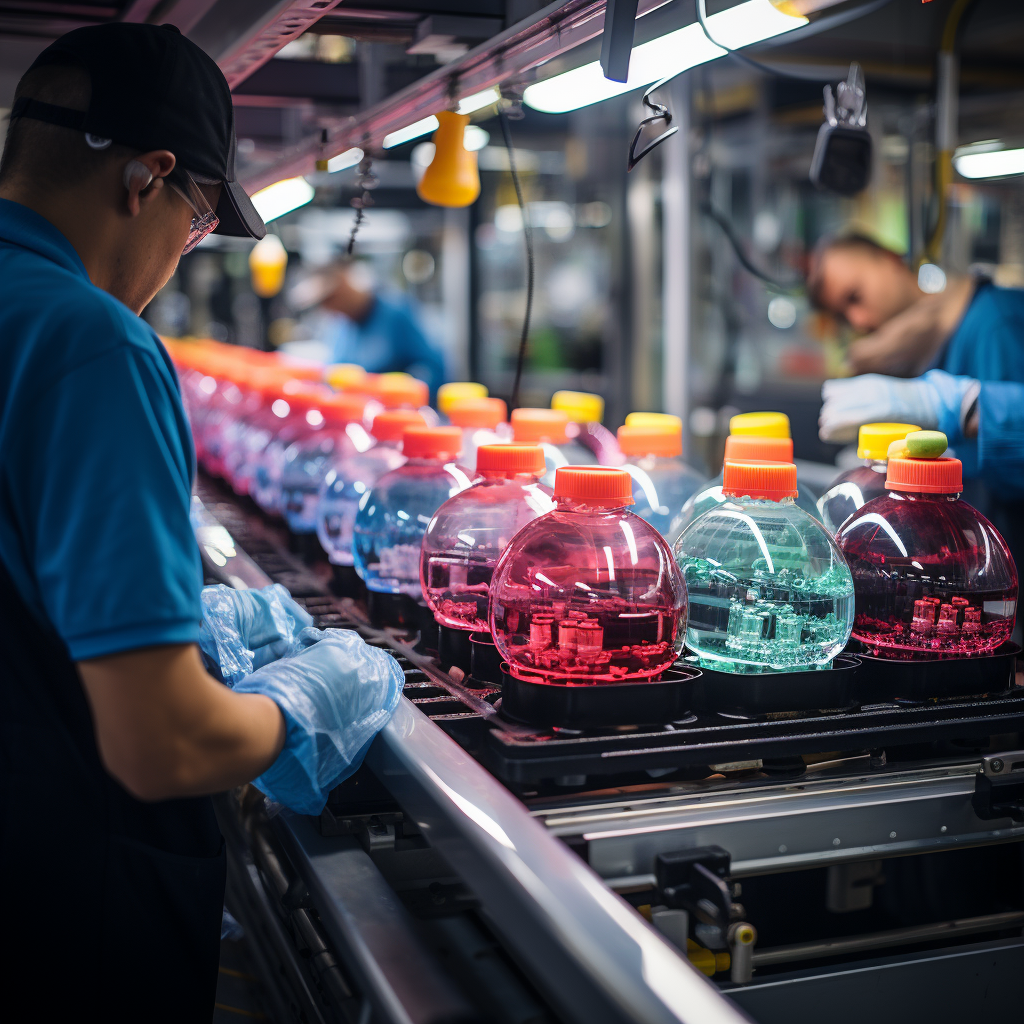Plastic Manufacturing in Chemical Industry

Strong 8k brings an ultra-HD IPTV experience to your living room and your pocket.
Plastic manufacturing in chemical industry share a close-knit relationship that has left an indelible mark on modern society. Plastics have become ubiquitous, transforming the way we live, work, and interact with the world around us. This article explores the intricacies of plastic manufacturing in the chemical industry, highlighting how this partnership has shaped our lives and continues to drive innovation, sustainability, and economic growth.
Plastic Manufacturing: The Chemical Industry's Backbone
Plastic manufacturing is intrinsically linked to the chemical industry, with the latter playing a pivotal role in providing the raw materials that form the foundation of plastic production. Plastics are primarily composed of polymers, which are long chains of repeating units. These polymers are derived from various feedstocks, and it's the chemical industry that spearheads their synthesis.
For instance, consider polyethylene, one of the most widely used plastics. The production of polyethylene involves the polymerization of ethylene gas, a product rooted in the chemical industry. Advances in catalyst technologies, including metallocene catalysts, have revolutionized polyethylene's properties, making it more versatile and applicable across a spectrum of industries. This showcases how the chemical industry shapes the very essence of plastic manufacturing.
Polymer Modification: Customizing Plastics for Diverse Needs
Plastics' versatility stems from their ability to be customized to suit a wide range of applications. This customization process, known as polymer modification, is heavily reliant on chemical additives and modifiers. The chemical industry provides a diverse array of additives, including plasticizers, antioxidants, UV stabilizers, and flame retardants, allowing manufacturers to fine-tune plastic properties according to specific requirements.
Consider polyvinyl chloride (PVC), a plastic used in countless applications. The incorporation of plasticizers, a practice championed by the chemical industry, imparts flexibility to PVC, making it suitable for products like vinyl flooring and medical tubing. This highlights the chemical industry's critical role in expanding the utility of plastics across industries and applications.
Sustainability Initiatives: Pioneering a Responsible Path
In recent years, the plastic industry has faced mounting scrutiny due to environmental concerns, particularly surrounding plastic pollution and waste. The chemical industry is actively addressing these issues by developing sustainable alternatives and technologies to reduce the environmental impact of plastics.
One notable example is the development of biodegradable and bio-based plastics. The chemical industry is at the forefront of researching and producing biopolymers such as polylactic acid (PLA) and polyhydroxyalkanoates (PHA), which serve as eco-friendly substitutes for conventional plastics. These innovations align with global sustainability goals and demonstrate the chemical industry's commitment to responsible plastic manufacturing.
Recycling and the Circular Economy: A Paradigm Shift
The concept of a circular economy, which emphasizes recycling and reusing materials to minimize resource consumption and waste generation, is reshaping plastic manufacturing. The chemical industry is a key player in advancing recycling technologies for plastics.
Chemical recycling, in particular, holds tremendous promise. This process breaks down plastics into their constituent monomers, which can then be used to produce high-quality plastic products. By reducing the reliance on virgin materials, chemical recycling aligns with the broader goals of sustainability and environmentally responsible plastic manufacturing.
Advanced Manufacturing Processes: Precision and Efficiency
Chemical engineers continuously refine manufacturing processes used in plastic production. Techniques such as injection molding, extrusion, and blow molding, deeply rooted in chemical engineering principles, improve the precision and sustainability of plastic manufacturing.
Moreover, the chemical industry's contributions extend to emerging technologies like 3D printing. Chemical formulations are at the core of creating diverse printable materials, enhancing customization and efficiency in plastic manufacturing.
Collaboration and Research: Fostering Innovation
Collaboration between the chemical industry and plastic manufacturers is essential for driving innovation in materials and processes. Joint research and development efforts have resulted in breakthroughs that benefit both sectors. These collaborations create a mutually enriching environment where chemical companies provide expertise in material science, while plastic manufacturers offer insights into real-world applications.
Regulatory Compliance: Ensuring Quality and Safety
The chemical industry in plastic manufacturing extends to regulatory compliance and safety standards. Chemical companies bear the responsibility of ensuring that additives, polymers, and other materials meet strict quality and safety regulations. This assurance is pivotal in maintaining the integrity of plastic products, ensuring their safety for consumers, and minimizing their environmental impact.
Conclusion
The dynamic partnership between plastic manufacturing and the chemical industry, is a driving force behind innovation, sustainability, and economic growth. The chemical industry's leadership in raw material development, polymer modification, sustainability initiatives, recycling, advanced manufacturing processes, collaboration, and regulatory compliance profoundly shapes the plastic industry's growth and adaptability.
As we navigate the challenges of environmental sustainability and seek responsible alternatives, the chemical industry remains at the forefront of reshaping the future of plastic manufacturing. Through innovation, research, and collaboration, these two industries together pave the way for a more sustainable and responsible approach to plastics, meeting the needs of contemporary society while preserving the environment for future generations.
Note: IndiBlogHub features both user-submitted and editorial content. We do not verify third-party contributions. Read our Disclaimer and Privacy Policyfor details.


